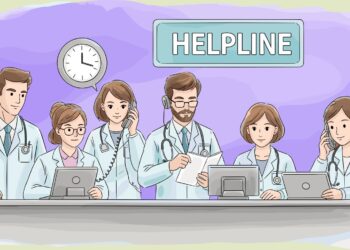Modern healthcare faces constant pressure to deliver safe, efficient, and compassionate care despite staff shortages and rising patient needs. Nurses sit at the center of this challenge, providing the majority of direct patient interaction and coordinating much of the care process. When nurses are trusted to use their knowledge, included in decision-making, and supported in their professional growth, healthcare outcomes improve in measurable ways.
Empowerment gives nurses confidence to act, solve problems, and advocate for their patients. It encourages accountability, teamwork, and innovation. As healthcare grows more complex, organizations that focus on empowering their nursing staff build stronger, more resilient systems where both patients and professionals thrive. Let’s elaborate on why empowering nurses has become one of the most effective strategies for improving patient care and building stronger healthcare systems.
1. Understanding Nurse Empowerment in Modern Healthcare
Empowerment in nursing means giving professionals the authority, confidence, and resources to make meaningful clinical decisions. It involves recognizing nurses as skilled experts rather than task executors. When nurses are empowered, they understand that their judgment is valued, their voices are heard, and their contributions matter.
This sense of ownership fuels motivation and trust within teams. Empowered nurses tend to collaborate more effectively, provide higher-quality care, and remain committed to their organizations for longer periods. It also improves patient satisfaction, as patients feel more secure when cared for by confident, communicative professionals.
2. Education as a Driver of Empowerment
Education plays a central role in strengthening professional confidence. Nurses who pursue higher learning gain a deeper understanding of clinical science, policy, and leadership. They also develop a stronger voice in shaping patient care strategies.
Academic advancement offers new perspectives and sharper decision-making skills, which translate directly into improved patient outcomes. Continuous learning helps nurses adapt to changes in technology, treatment methods, and patient expectations. Nurses looking to expand their influence in patient care can benefit from an online RN to MSN program that offers the flexibility to advance their education while continuing to make a difference on the front lines of healthcare.
3. Collaboration as a Foundation for Empowered Practice
Teamwork remains one of the strongest pathways to empowerment. When nurses collaborate closely with physicians, administrators, and allied health professionals, they gain a clearer sense of shared purpose. Collaboration creates space for open dialogue, mutual respect, and a unified approach to patient care.
Hospitals that foster collaborative cultures often experience better treatment coordination and fewer communication errors. Nurses who feel comfortable sharing their perspectives contribute insights that enhance diagnostic accuracy and improve patient recovery rates.
4. Pathways Toward Nursing Leadership
Leadership opportunities provide a powerful route to empowerment. Nurses who move into management, education, or policy roles influence decisions that shape care delivery at every level. Leadership fosters accountability and promotes innovation, encouraging nurses to champion changes that improve patient safety and staff well-being.
Organizations that support leadership development through mentorship and structured programs help create a steady pipeline of confident nurse leaders. These leaders set examples for younger colleagues, showing that professional advancement and compassionate care can go hand in hand.
5. Culture That Encourages Empowerment
A supportive workplace culture forms the backbone of sustained empowerment. When nurses feel respected, recognized, and safe to share their ideas, they perform at their best. Open communication between staff and management builds trust and strengthens teamwork.
Regular feedback sessions, shared governance councils, and recognition initiatives are effective ways to reinforce empowerment. Psychological safety is also vital, so nurses must know they can voice concerns without fear of blame. Institutions that value emotional well-being and transparency tend to experience lower turnover and higher engagement.
6. Technology That Strengthens Nursing Autonomy
Technology has become an essential partner in healthcare, and it offers new ways for nurses to exercise autonomy. Digital systems provide immediate access to patient records, lab results, and treatment histories, allowing nurses to make timely and informed decisions. With this access, they can anticipate complications, adjust interventions, and communicate clearly with other members of the care team.
Electronic health records, smart monitoring tools, and mobile health apps have also simplified how nurses track progress and coordinate care. These innovations reduce repetitive paperwork and help nurses focus more on the human side of healing. When nurses spend less time documenting and more time connecting with patients, satisfaction levels rise on both sides.

7. Measuring the Results of Empowerment
Empowerment produces results that can be measured and analyzed. Facilities that invest in nurse empowerment often report lower patient mortality rates, fewer medication errors, and higher patient satisfaction scores. These outcomes stem from a workforce that feels valued, capable, and motivated to perform at its best.
Studies consistently show that hospitals with empowered nurses also experience stronger employee retention and reduced burnout. When nurses influence their work environment and input in care decisions, they become more committed to their organizations. This sense of ownership promotes consistency in care delivery and builds institutional strength over time.
8. Obstacles That Limit Empowerment and How to Overcome Them
Challenges to empowerment still exist in many healthcare settings. Hierarchical structures often limit communication and decision-making freedom. Some facilities struggle with resource shortages, heavy workloads, or outdated leadership models that discourage initiative. These issues can leave nurses feeling undervalued and unheard.
Overcoming such barriers requires a deliberate shift in mindset at every level of the organization. Leadership commitment plays the biggest role. When administrators actively promote open dialogue, professional development, and recognition, empowerment becomes part of the institution’s identity. Mentorship programs can also help newer nurses develop confidence and find guidance in handling complex cases.
Empowering nurses is one of the most effective ways to strengthen healthcare systems. It elevates patient care, boosts morale, and builds resilience across every department. Nurses who have the freedom to use their judgment, pursue education, and participate in decisions deliver safer and more compassionate care.
Every healthcare organization has the power to cultivate empowerment through trust, inclusion, and opportunity. When nurses are equipped with knowledge, respected for their expertise, and encouraged to lead, they shape a future where healthcare becomes more humane and efficient.














Discussion about this post